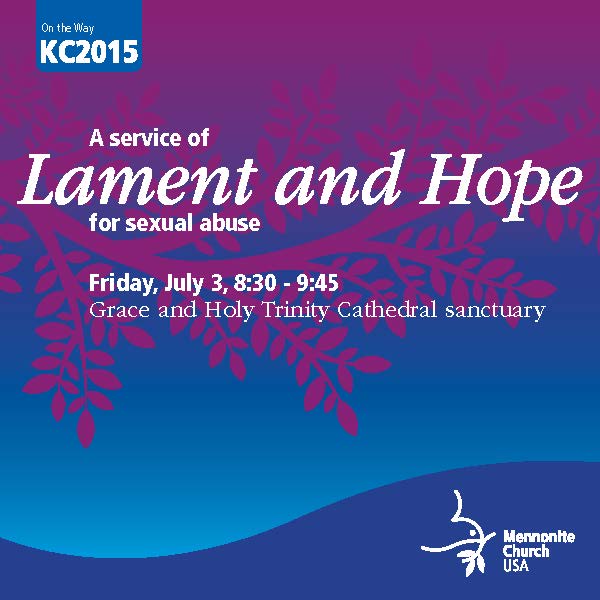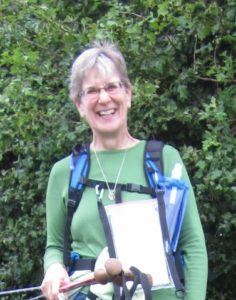Mary Lehman Yoder tends her gardens and her prayers in Goshen, Indiana. In addition to perennial gardening, she is an avid long-distance walker and lover of her grandchildren. Since her retirement from active pastoral ministry at Assembly Mennonite in 2011, she has become better acquainted with the Psalms, with lament and with paradox.
When the members of the Discernment Group on sexual abuse and the church approached me about chairing the planning group for the Service of Lament and Hope at Kansas City, I took an inward gasp for air.
Through my years of congregational ministry I have carried a passion for corporate worship and the power released as people gather in the presence of God.
I know the way song, scripture, ritual, visuals can come together and move us. Yet the pain around the sexual violence committed by John Howard Yoder seemed too deep for words and layered with complexity and paradox.
How might a service of worship at Kansas City be a part of the work that has been going on for many years?
How might it hinder that work? How would the worship fit alongside the work that the delegates would be doing? What kind of space would be available? What voices should be heard? What if no one came? What if we got it all wrong? Was the service to focus in some way on Yoder and/or his victims? What about all the other victims of sexual abuse in our congregations – both women and men – who carry pain? 
Despite these and many other questions I said yes to the assignment put before me. I was moved along knowing that others were taking great care, laboring slowly, faithfully. I am absolutely certain that it is time for the church to speak truth about sexual abuse. Wiser voices also reminded me over and over:
You won’t get it all right for everyone.
Yours is one small part.
You do the best you can, take counsel, and then trust the Spirit, who is always and ever moving us toward honest lament and the slow work of healing.
This movement is often circular rather than linear. The Service of Lament and Hope in Kansas City is one part. Direction began to emerge. Resources appeared. Encouragement, challenge, affirmation all became part of the planning process.
As Kansas City drew closer many of my questions were answered.
• This service is for all victims of sexual violence.
• This service is for all of us who want to move toward healthier patterns of being men and women together in our homes, families, congregations, conferences, workplaces.
• This service offers a place to bring our laments before the One who made us and knows us and loves us.
• This service is a companion to the work that the delegate body is doing.
• The service will be held at Grace and Holy Trinity Cathedral Sanctuary, Friday, July 3, 2015, 8:30 – 9:45 p.m.
Then another idea came to those of us planning: not everyone will be energized by the work of the delegate body. Not everyone will want to come to the corporate gathering for worship. Is there another way people might speak their pain, their fears, their laments? Is there another way to honor the deepest prayers of those who might remain unseen and unheard in the other two settings? That’s when we began to imagine a Wailing Wall – a physical space like the Wailing Wall in Jerusalem that could be safe place to write a lament, draw a picture, or sit and ponder that deep pain, outrage and hurt that continues to be present among us.
The wall is both a way to give voice to those who have experienced and are experiencing pain and to honor those voices.
It is not an opinion board, not a discussion venue. We are grateful that space is emerging and will be graciously tended in the Exhibit Hall.
May the words of our mouths, the meditations of our hearts, the best intentions of our labors be acceptable to the One who has knit us together in our mothers’ wombs, the One who blesses us in the midst of deep pain, the One who companions us wherever the hard road goes.
Breathe in, breathe out.
The Spirit, the Holy Breath, the Wind is at work.


